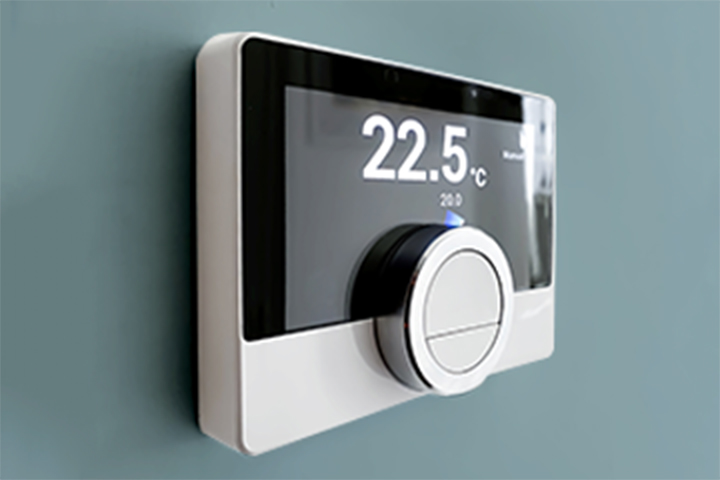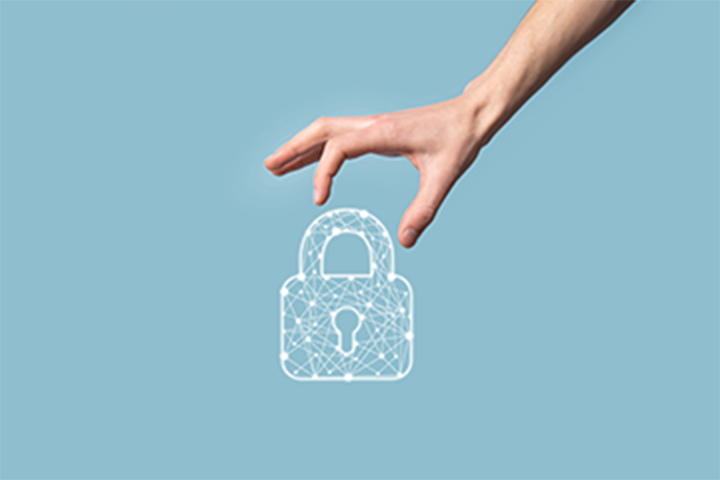Have you heard of these 12 types of fraud?

Keytrade Bank
keytradebank.be
October 24, 2023
7 minutes to read
Tens of thousands of people fall victim to (online) fraud every year in Belgium alone. What are the most common types and how can you protect yourself against them?
1. Fake websites and online shops
Nowadays, launching your own online shop is easier than ever. And criminals know this, too. Dozens of fake .be online shops are being taken down each year in Belgium alone. These are usually online shops selling products that are never delivered, or counterfeit websites of well-known companies and banks. Some of these malicious sites even succeed in getting high rankings in search results. Yet they also reel unsuspecting customers in through social media ads. Criminals may also act upon the latest trends, too, and open fake online shops 'selling' cheap firewood or other popular products.
10 tips to protect yourself against fake websites
- It's sometimes claimed that you can recognise a trustworthy online shop by the padlock in the address bar and that secure addresses always start with https://. However, that's not quite right. The padlock and https:// only tell you whether the connection is secure and do not indicate whether the online shop can be trusted or not.
- When you're shopping online, some websites ask you to create an account. If you can check out as a guest and don't have to create an account, continue as a guest. If, however, you need to create an account, make sure you choose a secure password.
- Check the seller's reputation using a search engine or customer reviews (you shouldn't always rely on testimonials placed on the merchant's website).
- You can contact the seller directly on a large number of sites (using live chat or email, for example). However, this doesn't guarantee a successful, reliable purchase.
- If you haven't heard of an online shop, a website's registration date can give you an indication of how trustworthy it is. You can check a website's registration date at eurodns.com (enter the website and click on the magnifying glass). If the website's only a few days, weeks or months old, it's better to be cautious.
- Sellers don't need any personal data – apart from your address for shipping – when you buy something online. Be wary if you're asked to divulge your income, your bank card PIN or your national registration number, for example.
- Check that the prices are similar to those listed elsewhere in other online shops. Offers that seem too good to be true may well be and could be a sign of fraud.
- Certificates and quality labels can be falsified. You should always check the label issuer's website to see whether the online shop actually has their seal of approval.
- Avoid transferring money internationally and online shops that say they only accept payments by bank transfer.
- Be cautious if an online shop tries to rush you into making quick decisions (by using a countdown timer or terms such as 'limited stock', for example).
2. Online marketplace fraud
Criminals are also active on popular second-hand platforms. They sell products that are never delivered, or pose as legitimate buyers. Once you've started a conversation, the buyer often turns out to be far away and cannot drop by. The fraudster then asks you to send the package via DHL, UPS or another courier. You'll then receive a link to the 'courier service', where you'll quickly have to enter your bank card details to confirm your identity or pay a few euros to have the item shipped. The buyer may also ask to verify your IBAN and ask you to transfer a small amount of money – and then they've got your bank details, too.
10 tips to protect yourself against fraud on online marketplaces
- Live chat tools on second-hand platforms usually contain security mechanisms that detect scams. The buyer or seller will often try to convince you with an excuse to continue the conversation over WhatsApp or email.
- If you do have to head to a site outside the platform for any reason, be sure to check the internet address you're being directed to. Check the address bar and compare it with the real DHL or UPS website, for example.
- Beware that fraudsters – operating under a false name – may sometimes send you a copy of their 'identity card' to reel you in if you're having any doubts.
- If you get to the point of actually buying or selling an item, agree with the buyer or seller to meet in person and pay in cash. Insist on meeting in person for things like digital concert tickets or other items that can be sent by email, too.
- Ask for a phone number just in case you're running late or if something gets in the way. A trustworthy person won't usually have a problem in sharing their phone number with you. Play it safe and call the number to check it's correct.
- Pay attention to buyers or sellers from abroad.
- Always check the buyer or seller's reputation. You can do this by clicking on the profile next to the ad. You should note, however, that this isn't a cast-iron guarantee, as a criminal could have gained control of the account.
- Be suspicious of emails constituting proof of shipment or payment and that purport to come from a bank.
- Never make advance payments.
- Imagine you've found a PlayStation 5 advertised for €80, or someone offers you €300 for your IKEA desk lamp. If an ad or bid seems too good to be true, it probably is.
3. Phishing
Phishing is a technique used by criminals to steal usernames, passwords, card details and other sensitive information. Someone pretends to be a trusted person or from a trusted organisation, company or the government and tempts you into opening an email, instant message or text.
Scammers come up with all sorts of tricks to lure you into a trap, telling you you're entitled to a subsidy or refund, you've won a prize, you've got a traffic fine to pay, your details need to be updated, and so on. Often, criminals act on the latest trends or simply your curiosity to reel you in.
At some point, whether it's in the original message or a later one, you'll be asked to click on a link to do something. This may take you to a fake website, install malicious software on your device or lead to another digital catastrophe.
You should also be aware that phishing doesn't always happen online, as fraudsters also try to obtain your data by phone, letter or a combination of several channels.
10 tips to protect yourself against phishing
- Do not respond to requests for personal details and PINs, even if such a request comes from 'your bank'.
- Never respond to unsolicited messages. This tells the phishers that the email address actually exists and is in use. Never forward chain letters. Forwarding means that your email address and those of your contacts are distributed.
- Do not click on 'Unsubscribe' in spam or phishing emails. This is often a fake link. If an email ends up in your junk folder, there's probably a good reason for it.
- Make sure your computer is secure with an up-to-date virus scanner, browser and operating system as well as a secure Wi-Fi connection. Do not use a free and/or insecure wi-fi connection. Never leave your computer unattended.
- Check your transaction history and any future transactions already set up on a regular basis. Always close your online banking session if an unusual event occurs when logging in or while you're banking online.
- Choose passwords and PINs that aren't obvious and remember to change them regularly. Always use two-factor authentication where possible.
- Do not save bank card details or passwords in your browser.
- Do not open documents or attachments if you don't trust the sender.
- If you've received a message from the sender for no reason, and it's urgent, someone's trying to pique your interest, and/or it's an unusual question, you should take extra caution.
- Check the sender's email address or phone number. You should note, however, that a trusted email address or phone number doesn't mean that it isn't a scam.
4. 'Friend in need' fraud
This form of fraud sees someone pretend to be a friend, family member or acquaintance. You'll get a message or email saying that their smartphone went in the wash, their wallet was stolen, or they've run into another problem. The conversation will always end with them asking whether you can send them some money.
10 tips to protect yourself against 'friend in need' scams
- Call your friend or contact them via another channel to find out if there's a real problem straight away. If your friend gives you an excuse as to why they can't pick up (they've got a poor signal or there's too much noise), something's not quite right.
- Ask your friend a few questions that only they would know the answers to.
- If the tone of the conversation is different to what you're used to, or the person greets you in a different way to how they'd normally greet you, there's something else going on.
- Fraudsters are usually in a hurry – although that's not always the case. Your friend may have lost their wallet on their travels and hasn't got anywhere to stay the night, they may not have any money to buy food, they need to pay an invoice urgently to avoid a fine, and so on.
- You shouldn't always trust a profile picture of your loved one, even if one is present next to the instant message.
- Scammers are sometimes able to learn and use the name of your son, daughter or other friend or relative. Don't let them fool you!
- Never replace an old phone number or email address until you have spoken to the person concerned and verified this information.
- Never click on a link, even if you're tempted to do so: Hi Dad, look at some photos I found of you!
- Imagine your daughter asks you to transfer €2,000 for a new smartphone, or a friend is stuck in Madrid and asks for €400 to cover a night in a hotel. The amount requested often doesn't reflect the actual cost.
- Fraudsters often combine 'friend in need' fraud with other techniques. If you see through the fraudster in the first instance, they may call you later on and pretend to be from the bank, for example. They will then inform you that they've detected suspicious activity on your account and ask you to transfer your money to another 'bank' account as a temporary measure.
5. Money mules
A money mule is someone who channels money obtained illegally on someone else's behalf. Criminals use money mules to help launder money gained from illegal activities such as human trafficking and drug trafficking. Criminals use a money mule's card and/or account to try to remove any connection or trace to themselves. The mules receive a fee – in the form of money or glitzy gadgets – in exchange for lending their card and/or account. Sometimes, though, they may also fall victim to being a mule without even noticing.
10 tips and things to consider to protect yourself against money mules
- Never lend anyone your bank account, bank card or PIN. They are yours – and yours alone.
- Fraudsters often target young people and people who are socially vulnerable. If you have children, talk to them about it.
- Do not open a bank account in your own name or a company's name to receive and transfer money if you're asked to do so.
- Always research the company or person offering you an 'additional income'.
- If you're making money quickly and easily, something may not be quite right. Listen to your gut feeling.
- If you no longer wish to cooperate, you may receive (physical) threats.
- Banks may close your account and even refuse to open an account in your name in the future if you're caught. You will also find it difficult to take out a loan.
- Being a money mule is illegal and is a criminal offence, even if you're unaware that you're committing a crime.
- If your bank card has been lost or stolen, call Card Stop on +32 (0)78 170 170. You can also block our credit cards in the app or on our online platform straight away.
- If you're approached online or on the street, report it to the police immediately.
And then there is ...
6. CEO fraud
This is a technique where a criminal poses as your CEO, manager or colleague. The fraudster usually wants to entice you into transferring money to a bank account or sending confidential information. They embellish their story by describing an urgent situation in their fake email or on the phone.
7. Safe deposit box fraud
This type of fraud often starts with a phishing message that takes you to a fake website, where you'll be asked to enter your details. Once you've done that, the fraudsters will contact you, pretending to be a bank employee and explaining that suspicious transactions have been carried out on your account. The fraudsters will then offer to transfer your money to a 'safe account'.
8. Phishing at home
You receive a phone call from a bank employee informing you that suspicious transactions have occurred on your account. They offer to come to your home address to resolve the situation. The fraudster comes round and has you log in to your online banking platform. This gives them the opportunity to note down your login details and codes. They then cut up your bank card before your own eyes after having swapped it unnoticed, or cut it carefully along the chip. The fraudster then has everything they need to withdraw money from your account.
9. Investment fraud
You receive a phone call from someone promising you a fortune – if you choose the right investment, at least. Or you see an ad on Facebook that reveals Elon Musk's latest investment plans. In either of the above situations, there's a good chance that a fraudster is attempting investment fraud. The projected returns often don't arise, or a handsome return is 'achieved' after a short period of time – after which an additional investment is required. Ultimately, the investments are worthless and your money is gone.
10. Dating fraud
A criminal assumes a false identity to gain your love and trust. The fraudster creates the illusion of a romantic or close relationship to manipulate you and/or rip you off. These criminals are experts in what they do and will appear genuine, caring and credible. Fraudsters can make a marriage proposal and arrange plans to meet in person. Eventually, and this may be after months or even years, they'll ask for money.
11. Helpdesk fraud
Helpdesk fraud sees someone pretend to be from Microsoft, Apple or another (software) company. When they get in touch, the fraudster will tell you they've detected issues on your device. They'll then urge you to take rapid action to avoid significant (or huge) problems. In practice, they'll take control of your computer, tablet or smartphone and attempt to capture sensitive information.
12. QR code fraud
QR code fraud is a form of digital deception in which attackers create malicious QR codes and distribute them in order to defraud users and steal personal information, financial data or access to secure systems. These fraudulent QR codes can be distributed in various ways, such as via email, social media or physical stickers. When victims scan these with their smartphones, they are often directed to fake websites or apps that look like legitimate sources. On these fake sites, users are then tricked into entering confidential data, such as passwords, credit card information or personal identification.


